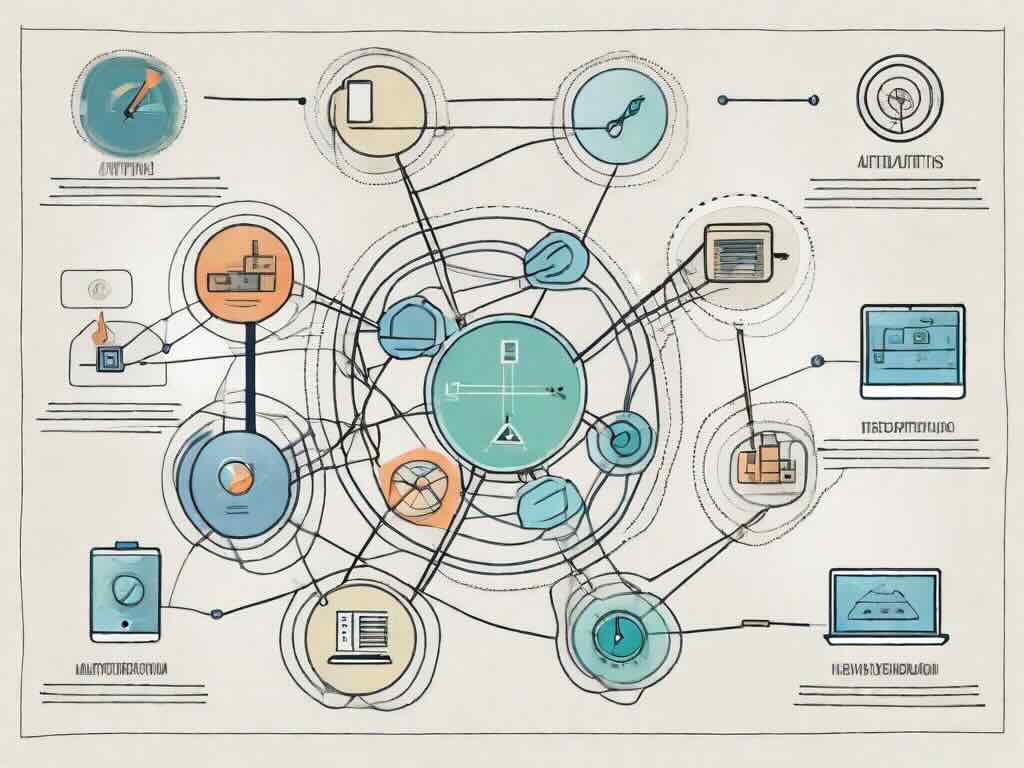
In today’s digitally-driven world, the need for skilled IT professionals has never been greater. One area within IT that offers promising career prospects is IT auditing. If you have an analytical mindset, attention to detail, and a passion for technology, a career as an IT auditor might be the right fit for you. Let’s explore what it takes to embark on and succeed in this dynamic field.
Understanding the Role of an IT Auditor
IT auditors are critical in ensuring the security and integrity of an organization’s IT systems and data. They are responsible for assessing the effectiveness of an organization’s IT controls and identifying any potential risks or vulnerabilities. By conducting audits and providing recommendations, IT auditors help organizations strengthen their IT infrastructure and minimize the chances of data breaches or system failures.
In addition to their primary responsibilities, IT auditors also contribute to an organization’s overall governance and risk management. They work closely with other departments, such as IT security and compliance, to develop and implement strategies that align with the organization’s objectives and regulatory requirements. By collaborating with these teams, IT auditors ensure that the organization’s IT systems are secure and compliant with relevant laws and regulations.
Key Responsibilities of an IT Auditor
One of the primary responsibilities of an IT auditor is to assess and evaluate an organization’s IT systems and controls. This involves conducting risk assessments, testing security measures, and reviewing IT policies and procedures. IT auditors also review the effectiveness of data backup and recovery processes, ensuring business continuity in the event of an IT incident.
Furthermore, they may be involved in evaluating compliance with relevant laws and regulations, such as data protection laws and industry-specific standards. This includes assessing the organization’s adherence to privacy regulations and ensuring that personal and sensitive information is handled and stored securely. IT auditors also review the organization’s adherence to industry-specific standards, such as the Payment Card Industry Data Security Standard (PCI DSS) for organizations that handle credit card transactions.
Skills Required for an IT Auditor
IT auditing requires a unique skill set combining technical knowledge and analytical prowess. Proficiency in areas such as computer networks, database management, and information security is essential. IT auditors must also possess strong problem-solving skills and be able to think critically when assessing risks and identifying control weaknesses.
Effective communication skills are also crucial, as IT auditors often need to present their findings and recommendations to key organizational stakeholders. They must be able to clearly articulate complex technical concepts to non-technical individuals, ensuring that their recommendations are understood and implemented effectively. Additionally, IT auditors must stay up-to-date with the latest developments in technology and cybersecurity to effectively assess and address emerging risks.
In conclusion, IT auditors play a vital role in ensuring the security and compliance of an organization’s IT systems. By conducting thorough audits and providing recommendations, they help organizations strengthen their IT infrastructure and minimize the risk of data breaches or system failures. With their unique skill set and expertise, IT auditors contribute to an organization’s overall governance and risk management, ensuring that IT systems align with objectives and regulatory requirements.
The Path to Becoming an IT Auditor
If a career as an IT auditor sounds intriguing, you may be wondering about the educational requirements and certifications necessary to pursue this path. To excel in this field, becoming an IT auditor requires a combination of education, certifications, and practical experience.
Educational Requirements
While educational requirements may vary depending on the organization, most employers prefer candidates with at least a bachelor’s degree in information technology, computer science, or a related field. A solid educational foundation is essential to understanding the complex systems and technologies that IT auditors encounter in their work.
Coursework typically includes subjects such as information systems, data management, and auditing principles. These courses provide a comprehensive understanding of the technical and theoretical aspects of IT auditing. Additionally, some organizations may require advanced degrees, such as a Master’s in Business Administration (MBA) focusing on information systems, to demonstrate a higher level of expertise.
Relevant Certifications for an IT Auditor
In addition to educational qualifications, obtaining professional certifications can significantly enhance your prospects as an IT auditor. Several certifications are highly recognized within the industry, such as the Certified Information Systems Auditor (CISA) credential offered by ISACA. This certification validates your knowledge and skills in auditing, control, and security of information systems.
Other certifications include the Certified Information Security Manager (CISM) and Certified Information Systems Security Professional (CISSP). These certifications focus on information security management and provide a deeper understanding of the principles and best practices in securing IT systems. Pursuing these certifications demonstrates your commitment to professional development and validates your expertise in IT auditing.
Gaining Experience in IT Auditing
For those starting out in the field, gaining practical experience is essential. Internships, entry-level positions, or volunteering with organizations that rely heavily on IT systems can provide valuable hands-on experience. Working alongside experienced IT auditors will expose you to real-world scenarios and help develop your technical and auditing skills.
Additionally, networking within professional organizations, such as ISACA, can provide opportunities to connect with seasoned IT auditors who can offer guidance and mentorship. Attending conferences, seminars, and workshops can also help you stay updated with the latest trends and developments in IT auditing.
As you gain experience and expertise in IT auditing, you may have the opportunity to specialize in specific areas, such as risk assessment, compliance, or forensic auditing. Specialization can further enhance your career prospects and open doors to advanced roles within the field.
Remember, a career in IT auditing requires continuous learning and staying updated with the evolving technology landscape. Embracing new technologies, such as cloud computing, artificial intelligence, and blockchain, will be crucial in adapting to the changing needs of organizations and ensuring the security and integrity of their IT systems.
Career Prospects in IT Auditing
The demand for IT auditors continues to grow as organizations recognize the importance of maintaining robust IT systems and protecting sensitive data.
Job Market Outlook for IT Auditors
The job market for IT auditors is expected to remain favorable in the coming years. The increasing reliance on technology across industriesand the ever-evolving cyber threats create a demand for professionals who can assess IT risks and help organizations stay ahead. Industries such as finance, healthcare, and government agencies have a particularly high demand for skilled IT auditors.
Potential Career Advancements
As an IT auditor, you can expect numerous opportunities for career progression. With experience and additional certifications, you can move into positions such as Senior IT Auditor, IT Audit Manager, or IT Audit Director. Advancement may also involve managing a team of IT auditors or overseeing the IT audit function within an organization.
Salary Expectations for IT Auditors
The salary of an IT auditor can vary depending on factors such as experience, certifications, industry, and geographic location. According to the Bureau of Labor Statistics, the median annual wage for IT auditors was $90,270 in May 2020. However, top earners with extensive experience and advanced certifications can earn well into six figures.
Day in the Life of an IT Auditor
Curious about what a typical day in the life of an IT auditor looks like? Here’s a glimpse into the tasks and activities that keep IT auditors busy.
Typical Tasks and Activities
An IT auditor’s day often begins with planning and scoping audits, determining the areas to be evaluated, and establishing the testing methodologies. They then conduct fieldwork, which involves gathering evidence, analyzing data, and interviewing key personnel. Back at the office, IT auditors review their findings, prepare reports, and communicate their recommendations to management. They may also participate in organizational meetings, attend training sessions, and stay updated on the latest technology trends and regulatory requirements.
Challenges and Rewards of the Job
IT auditing has its fair share of challenges and rewards like any profession. IT auditors constantly face the challenge of keeping pace with rapidly evolving technology and the ever-changing threat landscape. The responsibility of identifying potential risks and vulnerabilities can be demanding, requiring meticulous attention to detail and continuous learning. However, the rewards of the job come in the form of contributing to the security and resilience of organizations, making a positive impact, and enjoying a rewarding and intellectually stimulating career.
Case Studies of Successful IT Auditors
What better way to understand the journey to success as an IT auditor than through insightful case studies of those who have achieved it?
How They Started
Successful IT auditors come from diverse backgrounds. Some may start their careers in IT roles, such as system administrators or network engineers, before transitioning into IT auditing. Others may begin in traditional auditing roles and develop a passion for IT along the way. Regardless of the path taken, their common thread is a dedication to building their knowledge and skills in IT auditing.
Their Journey to Success
Each successful IT auditor has a unique story to tell. They have pursued further education, obtained relevant certifications, and sought out opportunities to gain practical experience. Additionally, they have honed their communication and leadership skills, allowing them to excel in their roles. Through perseverance and a commitment to continued growth, these individuals have achieved success and established themselves as respected professionals in the IT auditing field.
In conclusion, a career in IT auditing offers a stimulating and rewarding path for individuals with a passion for technology and a keen eye for detail. By understanding the role, requirements, and potential career advancements, you can take the first steps toward building a successful career in this evolving field. So, if you’re ready to explore an IT audit career, equip yourself with the necessary knowledge, skills, and certifications, and prepare to embark on a journey filled with opportunities and professional growth.






